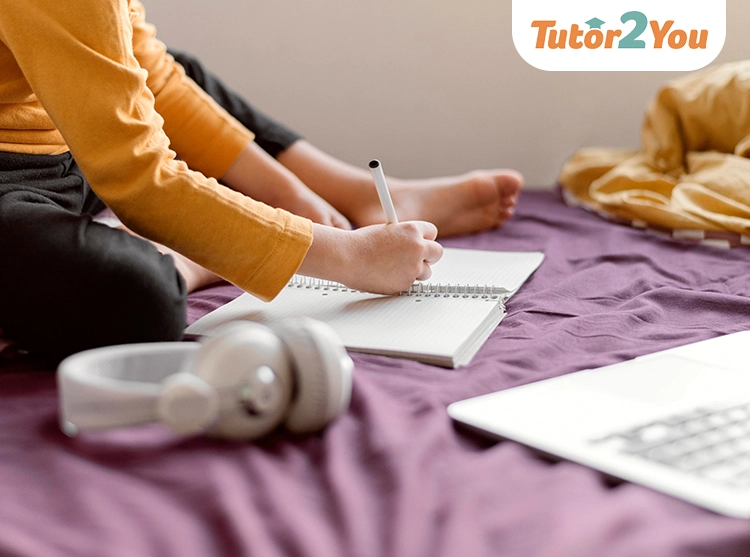
Building Strong Study Habits Early in the Term
As the holidays wind down, it's essential for students and parents to prepare for the upcoming school term. A strong start can set the tone for success throughout the term. Here are key strategies to help students get ready mentally and academically.
Why the First Few Weeks Set the Tone for Success
Students often underestimate the impact of their study habits at the start of the term. However, these early weeks play a significant role in shaping their academic journey. Here’s why:
- Prevention of Overwhelming – When students keep up with their lessons from the beginning, they avoid the pressure of catching up later in the term. Small, consistent efforts make learning more manageable.
- Stronger Retention of Information – Concepts learned at the beginning of the term serve as the foundation for more complex topics. Regular review and reinforcement help students retain information long-term, making exam preparation easier.
- Development of a Growth Mindset - Establishing a consistent study routine early helps students stay disciplined, motivated, and confident in their learning abilities.
- Better Time Management – When students start managing their workload effectively from the beginning, they create a habit of prioritising tasks, leading to less procrastination and better academic performance.
Effective Study Habits to Adopt Now
To maximise learning and maintain good academic performance throughout the term, students should incorporate these key study habits:
1. Create a Dedicated Study Space
A well-organised and quiet study environment helps improve concentration and productivity. Ideally, this space should be free from distractions like television, loud noises, or clutter. Good lighting, a comfortable chair, and easy access to study materials can also enhance focus.
2. Use a Planner or Calendar
Keeping track of homework, assignments, and test dates helps students stay organised. A digital or physical planner allows students to set reminders and allocate enough time for studying instead of rushing at the last minute.
3. Set Clear Study Goals
Instead of saying, "I will study maths today," students should set specific goals like, "I will complete 10 algebra problems and review my notes on fractions." Setting SMART (Specific, Measurable, Achievable, Relevant, Time-bound) goals ensures study sessions are practical.
4. Practice Active Learning
Passive reading is not enough. Engaging with the material through summarisation, self-quizzing, discussions, and teaching concepts to others improves understanding and recall. Students should also use visual aids like diagrams and mind maps to reinforce learning.
5. Review and Revise Regularly
Many students wait until exams to revise, but small, frequent reviews are more effective. The "Look, Cover, Write, Check" method is a simple technique for memorisation. Regularly revisiting notes prevents last-minute cramming and reinforces learning.
6. Stay Consistent with Daily Study Habits
Studying a little each day is far better than cramming before exams. Students should aim for consistent, short study sessions (30–45 minutes) rather than overwhelming, long hours of studying.
How to Create a Consistent Study Routine
Establishing a structured study routine helps students stay disciplined and motivated. Here’s how to develop an effective study plan:
- Set a Study Schedule - Allocate a fixed time for studying each day. For example, you could schedule 4:00 PM–5:00 PM for reviewing lessons and 7:00 PM–8:00 PM for homework. A consistent routine trains the brain to focus during these periods.
- Balance Subjects Wisely – Rotating subjects in study sessions keeps learning engaging. Studying the same subject for hours can lead to boredom, so switching between different topics is best.
- Use the Pomodoro Technique – This technique involves studying for 25–30 minutes, followed by a 5-minute break. After four sessions, students can take a more extended break of 15–30 minutes. This helps maintain focus and prevents burnout.
- Eliminate Distractions – Phones, social media, and background noise can disrupt concentration. A simple solution is to put the phone in aeroplane mode or use website blockers during study sessions.
- Prioritise Rest and Well-being – Sleep and short breaks help focus and memory retention. Sleep-deprived students often struggle with concentration, so ensuring at least eight hours of sleep is crucial.
Conclusion
Success in school doesn’t happen overnight—it’s built through consistent and effective study habits. Students can stay organised, reduce stress, and improve their academic performance by starting strong in the first few weeks of the term.
At Tutor2you, we support students in developing strong study skills and academic confidence. If your child needs personalised tutoring support, contact us at 1300 4200 79 or download our information pack today.


